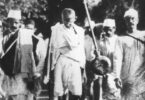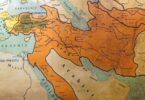World History Treaty of Versailles Quiz
Which major conflict did the Treaty of Versailles end?
(a) World War I
(b) World War II
(c) Cold War
(d) Korean War
How did Hitler violate the territorial provisions of the treaty?
(a) Hitler annexed Austria, violating the prohibition of Anschluss.
(b) Hitler restored Germany’s pre-war territorial borders.
Which country bore the majority of blame and responsibility for the war?
(a) Germany
(b) France
(c) United Kingdom
(d) United States
The Treaty was signed in which city?
(a) Paris
(b) Berlin
(c) London
(d) Rome
What were the main provisions of the Treaty?
(a) It imposed heavy reparations on Germany, reduced its territory, and placed restrictions on its military.
(b) It established the League of Nations and promoted international cooperation.
(c) It granted self-determination to various nations and redrew national boundaries.
(d) It ended European powers’ colonization of Africa and Asia.
Who represented the United States and signed it?
(a) Franklin D. Roosevelt
(b) Herbert Hoover
(c) Woodrow Wilson
(d) Harry S. Truman
The Treaty resulted in the establishment of:
(a) The League of Nations
(b) The United Nations
(c) The European Union
(d) The World Trade Organization
Which of the following was NOT a significant provision of the Treaty?
(a) Imposition of reparations on Germany.
(b) Disarmament of the German military.
(c) Return of all captured territories to Germany.
(d) Creation of new nations from former empires.
The Treaty of Versailles required Germany to make reparations payments primarily to:
(a) France
(b) United Kingdom
(c) United States
(d) Italy
The Treaty imposed strict limitations on which aspect of Germany’s military?
(a) Navy
(b) Air Force
(c) Army
(d) All of the above
What was the aim of League of Nations?
(a) Promote international cooperation and prevent future conflicts.
(b) Annex German territories and redistribute them among other nations.
(c) Impose strict economic sanctions on Germany.
(d) Establish a military alliance against Germany.
The Treaty of Versailles was signed on __
(a) June 28, 1914
(b) November 11, 1918
(c) June 28, 1919
(d) November 11, 1919
How did it contribute to Adolf Hitler’s rise?
(a) The Treaty directly led to the rise of Hitler and the Nazi party.
(b) The Treaty’s harsh terms humiliated Germany, fostering resentment and nationalist sentiments.
Which country’s representative signed the Treaty on behalf of Germany?
(a) Adolf Hitler
(b) Wilhelm II
(c) Friedrich Ebert
(d) Karl Dönitz
Related: Exploring USSR History Quiz
Which of the following leaders signed the Treaty on behalf of France?
(a) Georges Clemenceau
(b) Winston Churchill
(c) David Lloyd George
(d) Woodrow Wilson
Which of the following was a significant territorial provision imposed on Germany?
(a) The return of Alsace-Lorraine to Germany.
(b) The establishment of the Rhineland as a demilitarized zone.
(c) The annexation of Sudetenland by Germany.
(d) The creation of an independent Poland.
Which territory was returned to France?
(a) Alsace-Lorraine
(b) Sudetenland
(c) Memel
(d) Saarland
Related: Oil Embargo, 1973–1974 Quiz
Which provision of the Treaty aimed to prevent future military aggression by limiting Germany’s military capabilities?
(a) The creation of an independent Poland.
(b) The establishment of the Rhineland as a demilitarized zone.
(c) The transfer of German colonies to Allied powers.
(d) Czechoslovakia was recognized as an independent state.
Which prominent figure played a significant role in drafting the Treaty?
(a) Woodrow Wilson
(b) Georges Clemenceau
(c) Winston Churchill
(d) Joseph Stalin
How did the harsh terms of the Treaty of Versailles contribute to its failure?
(a) The terms alienated Germany and fueled nationalist sentiments.
(b) The terms provided economic stability for other European nations.
(c) The terms promoted international cooperation and harmony.
Related: The Ultimate WW2 Pacific Theater Quiz
Which major country’s refusal to ratify weakened its effectiveness?
(a) United States
(b) France
(c) Germany
(d) United Kingdom
Which political faction in the United States opposed the ratification of the Treaty?
(a) Republicans
(b) Democrats
(c) Socialists
(d) Independents






